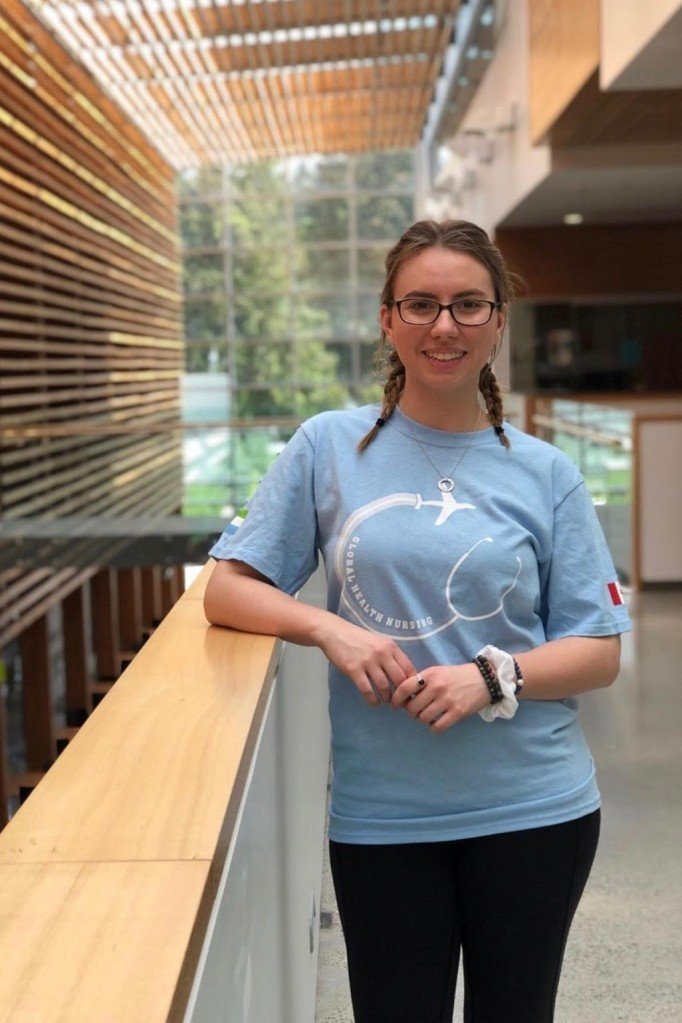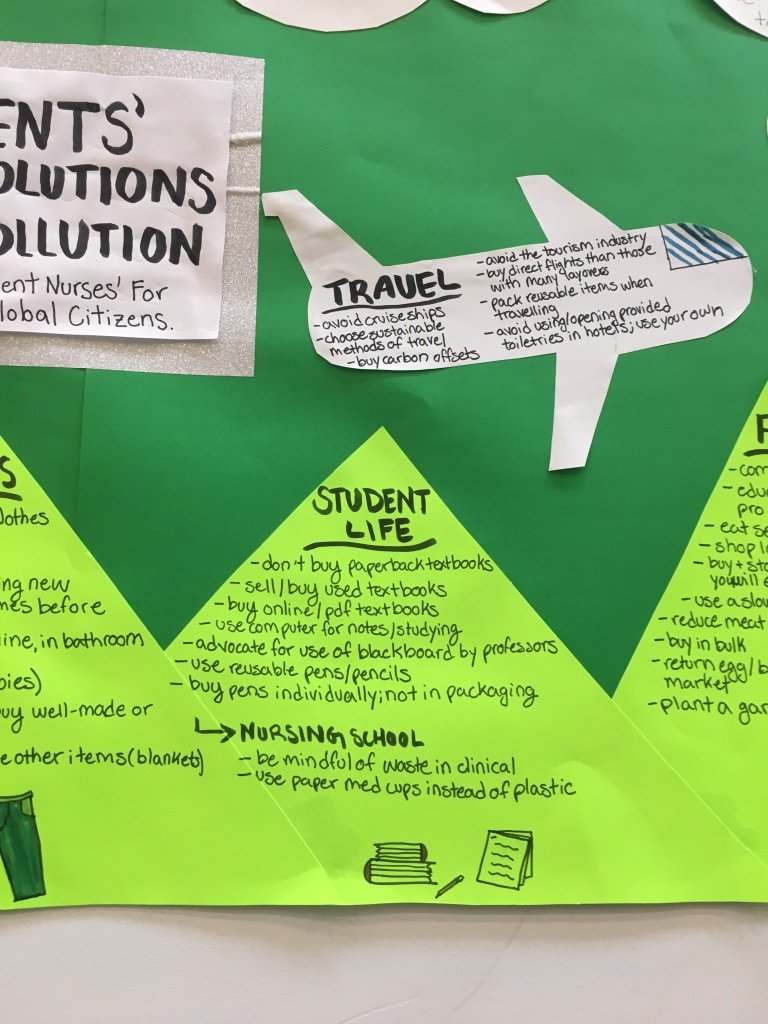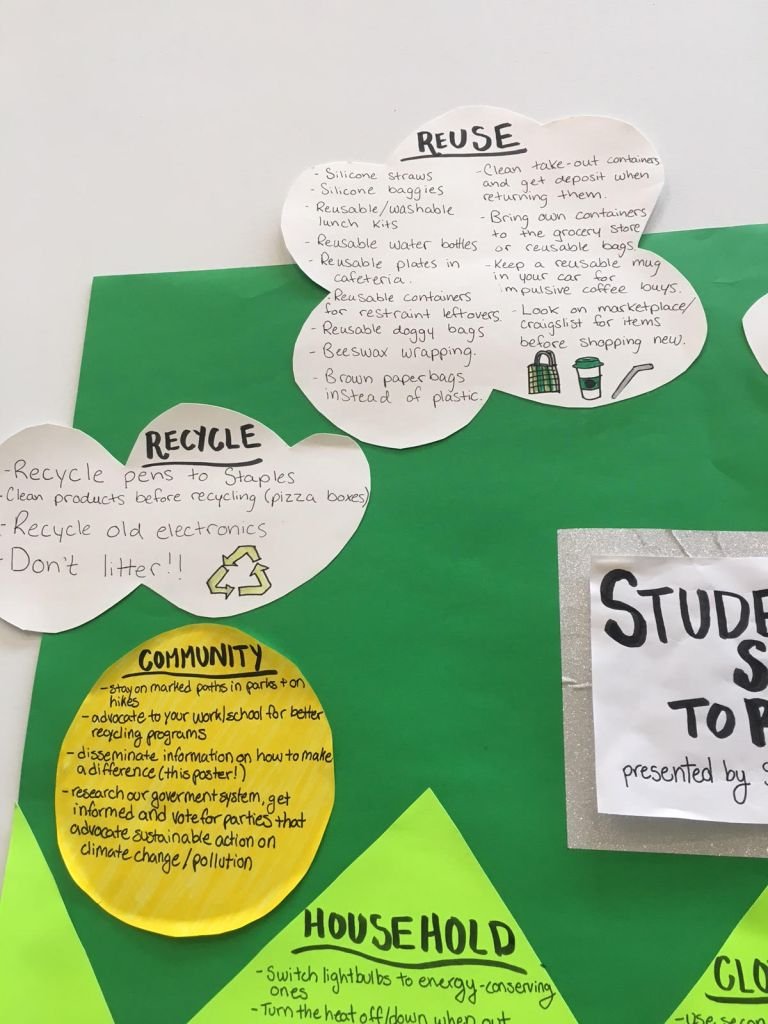Two students from the University of Fraser Valley describe how they took initiative in raising awareness about planetary health through the effective use of social media. Read on to explore how you can adapt this project in your own community.
By Julie Rhodes & Julia Chalmers
What are your names and research areas?
My name is Julia Chalmers, I am a third-year undergraduate nursing student at the University of the Fraser Valley (UFV). My current area of interest in global health and the connections between planetary health and human health.
My name is Julie Rhodes, I am a third-year undergraduate nursing student at the University of the Fraser Valley. My current area of interest is health promotion and primary health care as it relates to public and global health.
We both attended the study tour to Sierra Leone offered by UFV in Spring of 2019 which is where our passion for global health emerged. As undergraduate students we are not researchers however we hope to explore opportunities as we continue our education and careers. We are also cofounders of the “Student Nurses for Global Citizens” group at UFV.
Please briefly describe the project and its goals.
This project was inspired by the momentum of the movement “Friday’s for Future”. As students we wanted to contribute and engage our student population in making a difference in climate change action. We wanted to hear the ideas of the student body and to display them on campus. So we hosted a giveaway on our Instagram page asking students to comment their ideas or “solutions to pollution” as we were calling them. Every comment was an entry and we drew a winner for a sustainability starter package after the contest was over. We then compiled the comments into themes and created a visual poster to display at our home campus in Chilliwack BC. We hoped that by spreading the word, we inspired some students to take some accountability towards how our actions impact the health of our local and global communities.
In your opinion, what are some of the most critical planetary health issues?
Beautiful mountains, lush forests, and pristine oceans and rivers are just a few of the things British Columbia is known for. However, in recent years these fundamental ecosystems have been under the threat of climate change. The WHO (2019), recognizes climate change as a significant global health threat. It is evident that planetary health has a profound effect on the health of humans. In British Columbia alone we have seen an influx of drastic weather events such as flash flooding, extreme heat and drought, and ramped wildfire activity. Flooding can displace people from their homes, lead to food and water contamination and result in property damage. Moreover, smoke from wildfires reduces air quality which can exacerbate cardiovascular and respiratory conditions such as asthma and COPD (Government of British Columbia, n.d.a). Additionally, the effects of climate change will impact vulnerable populations most such as those living in rural communities and Indigenous populations. As health care providers we must be prepared to respond to climate change related health issues. Development of emergency protocols, incorporating climate change education in patient teaching and lobbying for sustainable policy are just a few examples of how health care providers can respond to the climate crisis (Government of British Columbia, n.d.b). Globally, low income countries with weak health infrastructure will require significant support to cope with the effects of the climate crisis on human health (WHO, 2019).
What did you find successful about this project?
We had a lot of student engagement which was amazing to see. We had 143 different comments from students presenting their solutions to pollution. Ideas ranged from using reusable coffee cups to advocating and lobbying for more sustainable policies to local government and institutional bodies. It was very encouraging and inspiring to see the ideas of our peers on how individuals can make a practical difference for the health of our local and global communities. One thing that facilitated the success of this project was the timing: the contest took place during the Federal Election as well on the coat tails of Greta Thunberg’s appearance in Vancouver. We approached the community at a time when the discussion around climate change was at an all-time high and therefore received a significant amount of engagement.
What did you find challenging and/or surprising about the roll-out of this project?
We were unsure of the level of engagement we would receive from the UFV community as we had never done a project like this before. Moreover, we had to educate ourselves to ensure we were disseminating accurate information to our peers.
What advice would you give other students or young professionals if they wanted to pursue a similar project?
Know your audience. You can go into a project with as much motivation and initiative as you want but if you don’t know how to engage your audience then you won’t be as successful. An important factor when using social media to promote an initiative is to know what will stand out and how to spark an interest. For example, we kept our contest rules very simple: you just had to 1. Comment an original idea and 2. Be a student at UFV. We knew that a lot of Instagram contests often have multiple rules to gain an entry which can be a deterrent to people, so we wanted to keep ours simple and content focused. We weren’t fixated on gaining followers or likes, rather we wanted to hear the voices of our community and give them a platform to share their ideas.
In what ways was social media an advantage?
It’s very easily accessible for people and relevant to our population of interest: other students. Likewise, Instagram is a visual tool which has been helpful for us in our projects. Social media has the ability to grab people’s attention and expose them to the realities of our world. After this project we reflected back and realized how it really was a form of community brainstorming. In today’s day and age social media can be something that is very negative, and we can often become bogged down by marketing and consumerism. However, this project was a way of using social media to our advantage to spark an interest in our community and raise awareness about the action needed during the climate crisis.
References
Government of British Columbia. (n.d.a). Addressing climate and health risks in BC: Climate change health risks. Retrieved from: https://www2.gov.bc.ca/assets/gov/environment/climate- change/adaptation/health/final_climate_change_and_health_backgrounder_overview.pdf
Government of British Columbia. (n.d.b) Addressing climate and health risks in BC: Frontline healthcare. Retrieved from: https://www2.gov.bc.ca/assets/gov/environment/climate- change/adaptation/health/final_climate_and_health_backgrounder_frontline_health_care.pdf
World Health Organisation [WHO]. (2018). Climate change and health. Retrieved from:https://www.who.int/news-room/fact-sheets/detail/climate-change-and-health




